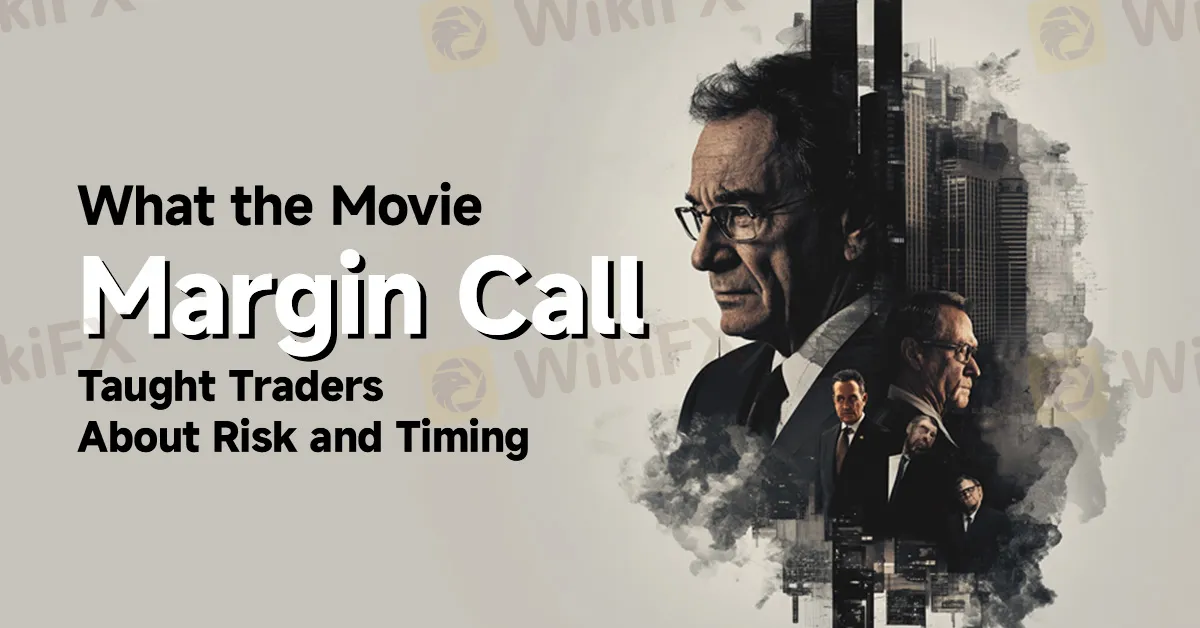Abstract:The 2011 film Margin Call offers a gripping portrayal of the early hours of the 2008 financial crisis, set within a Wall Street investment firm. While the film is a fictionalised account, its lessons resonate strongly with traders and finance professionals. For one trader, watching the film had a lasting impact, shaping how they approached risk, decision-making, and the harsh realities of the financial world.

The 2011 film Margin Call offers a gripping portrayal of the early hours of the 2008 financial crisis, set within a Wall Street investment firm. While the film is a fictionalized account, its lessons resonate strongly with traders and finance professionals. For one trader, watching the film had a lasting impact, shaping how they approached risk, decision-making, and the harsh realities of the financial world.
One of the most powerful lines in the film is delivered by the firms CEO, John Tuld, who states, “Be first. Be smarter. Or cheat.” This blunt statement reflects an uncomfortable truth about the financial world: success is often determined by staying ahead of the curve. For this trader, it highlighted a critical point: being right is not enough if the action is delayed. Although the trader had always focused on market analysis, this scene served as a reminder that timing is key. Following this realization, they began paying closer attention to execution, reviewing their response times to market signals, and working to speed up their decision-making process while maintaining accuracy.

The film‘s pivotal moment comes when junior analyst Peter Sullivan uncovers a serious flaw in the firm’s risk models. This discovery sets off a chain of events that ultimately leads to the firm‘s downfall. For the trader, this moment reinforced the importance of always considering risk, even when it isn’t immediately apparent. Just like in the film, risk can be lurking beneath the surface, even when everything appears stable. This realisation prompted the trader to reassess their own approach to risk management. They revisited their stop-loss strategies and spent more time on trading simulators to prepare for unexpected market fluctuations, ensuring they were better equipped for potential risks.
Another impactful scene in the film focuses on the firms senior executives, who must make the difficult decision of what to do with toxic assets. While the ethics of their decision can be debated, the scene underscores the weight of making tough choices under pressure. For traders, this scene is a reflection of the decisions they must often face: Do they cut losses early, or hold on, hoping for a recovery? Do they stick to their original plan, or adjust it based on new information? For this trader, it was a reminder of the importance of staying disciplined and relying on logic and strategy, even in high-pressure situations. They learned to focus on rational decision-making rather than giving in to emotions, especially in volatile market conditions.
One of the most striking quotes in the film comes from John Tuld, who says, “It‘s just money. It’s made up. Pieces of paper with pictures on it.” Although this line is somewhat controversial, it offers an oddly comforting perspective. In the fast-paced world of trading, it‘s easy to become emotionally attached to both wins and losses. However, this quote reminded the trader that money is simply a tool and not something to become emotionally tied to. As a result, the trader worked on detaching their emotions from their trades, realising that a loss isn’t the end of the world, and a win should not lead to overconfidence. They found that focusing on the trading process, rather than on the profits, helped improve their overall mindset.
Margin Call provides valuable lessons that extend beyond the world of finance. For the trader who watched the film, it taught them to respect the market, prepare for the unexpected, and approach trading with a more disciplined, focused mindset.











